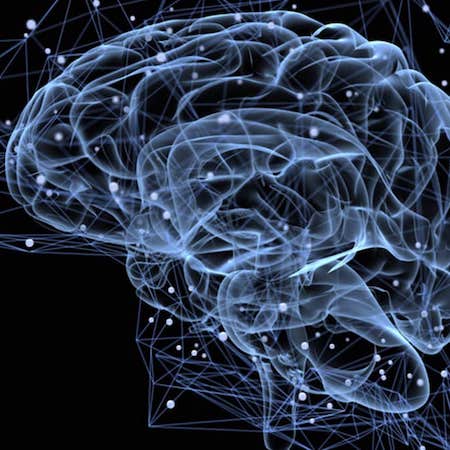Treatment for Mental Health Disorders
Depression is often called the common cold of mental health. While that probably is a good analogy for the frequency of depression, it is not a good analogy for its potential severity. Everyone goes through times when they are down and depressed, but major depression can suck the life right out of a person, leading to serious medical issues and thoughts of suicide. Depression can be a killer and should be taken very seriously. Below are some good resources for you to learn more about depression.
Bipolar disorder is a chronic or episodic (which means occurring occasionally and at irregular intervals) mental disorder. It can cause unusual, often extreme and fluctuating changes in mood, energy, activity, and concentration or focus. Bipolar disorder sometimes is called manic-depressive disorder or manic depression, which are older terms. Everyone goes through normal ups and downs, but bipolar disorder is different. The range of mood changes can be extreme. In manic episodes, someone might feel very happy, irritable, or “up,” and there is a marked increase in activity level. In depressive episodes, someone might feel sad, indifferent, or hopeless, in combination with a very low activity level. Some people have hypomanic episodes, which are like manic episodes, but less severe and troublesome. Most of the time, bipolar disorder develops or starts during late adolescence (teen years) or early adulthood. Occasionally, bipolar symptoms can appear in children. Although the symptoms come and go, bipolar disorder usually requires lifetime treatment and does not go away on its own. Bipolar disorder can be an important factor in suicide, job loss, and family discord, but proper treatment leads to better outcomes.
Hearing your counselor say you have an anxiety disorder can be confusing. The good news is that the feelings and stress-related behaviors you have been concerned about are actually symptoms of a treatable disorder. By getting treatment and engaging in recovery, people with an anxiety disorder can manage their symptoms, feel better, and lead productive and meaningful lives. Recovery does not necessarily mean a cure. It does mean that people are actively moving toward wellness.
At Wesley Counseling, we treat the person, not a label. No one is called an “addict” or “alcoholic”, treated like a criminal or a child. Rather, everyone is treated with dignity and respect as intelligent human beings who know themselves better than anyone. We believe people have the power to change. We do not believe people are powerless to make changes in their addictive behaviors. Instead, we believe people can and do change every day. We believe people change from within and not from outside of themselves. While many influences can bring us to be ready for change, it is the individual who must do the work and receive the benefits from change.
We believe that one can change without treatment. Often, people can change without going into rehab. Yet, we have found that many need guidance and support through their journey toward wellness. We believe in outpatient treatment for most individuals. Residential programs have a purpose for some, but long-term outpatient treatment has better outcomes than many short-term intensive therapy programs. We believe in individual treatment. While group therapy can be good for many and often helpful, individual therapy is essential for some or all of the treatment focus. Peer support can be helpful but, depending on the group of peers, may often harmful as well. If indiiudals are truly serious about getting help, the peer group they choose can make all the difference. We believe that addiction treatment should be done by trained professionals and not by individuals with whom their only credentials are being a “former addict” and attendance at a few workshops.
Eating disorders are serious medical illnesses marked by severe disturbances to a person\’s eating behaviors. Obsessions with food, body weight, and shape may be signs of an eating disorder. These disorders can affect a person’s physical and mental health; in some cases, they can be life-threatening. But eating disorders can be treated. Learning more about them can help you spot the warning signs and seek treatment early.
Remember: Eating disorders are not a lifestyle choice. They are biologically-influenced medical illnesses.
Who is at risk for eating disorders?
Eating disorders can affect people of all ages, racial/ethnic backgrounds, body weights, and genders. Although eating disorders often appear during the teen years or young adulthood, they may also develop during childhood or later in life (40 years and older).
Remember: People with eating disorders may appear healthy, yet be extremely ill.
The exact cause of eating disorders is not fully understood, but research suggests a combination of genetic, biological, behavioral, psychological, and social factors can raise a person’s risk.
Psychosis is best treated early, as soon as one has begun to experience the symptoms of psychosis. Unfortunately, psychosis seems to target young people, young adults, who are going through puberty and/or are experiencing hormonal changes. We are not certain about cause, but family history often plays a role, as well as stressors happening during a critical brain development stage.
 It is imperative to get help early if you see any warning signs. A team-based approach has been found to be most effective. The team will usually include physicians, psychiatrists, counselors, and case managers. They will all work together to find the best medication and therapeutic treatments for each individual.
It is imperative to get help early if you see any warning signs. A team-based approach has been found to be most effective. The team will usually include physicians, psychiatrists, counselors, and case managers. They will all work together to find the best medication and therapeutic treatments for each individual.
Dr. Wesley is a counselor who has worked extensively with those experiencing psychoses. He knows and understands the signs and can help you navigate the system as you work through this diagnosis. Parents often find themselves at a loss as to what to do when they have a teen who is battling this barrage of symptoms. It can be a bit scary and frustrating trying to find the right help. Let Dr. Wesley be your guide through this difficult time.
Trauma changes how a person regulates their thoughts and feelings, and their ability to care for themselves emotionally and psychologically. TIC also recognizes that a person with a history of trauma may not think of himself or herself as a trauma survivor, and may not even be fully aware of what it means to live with the consequences of what they experienced.
A therapist who is trauma-informed knows that the mind and body of a person with unhealed trauma is functioning in an altered way. That person may be easily triggered to feel too much emotional intensity (hyperarousal), or shut down and unable to feel much at all (hypoarousal).
Someone offering trauma-informed care uses all the tools and treatments they can to promote healing, while preventing further harm from hyper- or hypoarousal.

Suicide
Suicide is a major public health problem and a leading cause of death in the United States. The effects of suicide go beyond the person who acts to take his or her life: it can have a lasting effect on family, friends, and communities. This fact sheet, developed by the National Institute of Mental Health (NIMH), can help you, a friend or a family member learn about the signs and symptoms, risk factors and warning signs, and ongoing research about suicide and suicide prevention.
If You Know Someone in Crisis: Call the toll-free National Suicide Prevention Lifeline (NSPL) at 1-800-273-TALK (8255), 24 hours a day, 7 days a week. The service is available to everyone. The deaf and hard of hearing can contact the Lifeline via TTY at 1-800-799-4889. All calls are confidential. Contact social media outlets directly if you are concerned about a friend\’s social media updates or dial 911 in an emergency. Learn more on the NSPL\’s website. The Crisis Text Line is another resource available 24 hours a day, 7 days a week. Text “HOME” to 741741.
Schizophrenia
Schizophrenia is a serious and lifelong neurodevelopmental disorder that affects how a person thinks, feels and behaves.
People with schizophrenia may experience delusions, hallucinations, disorganized speech or behavior, and impaired cognitive ability. They may hear voices or see things that aren’t there. They may believe that other people are reading their minds, controlling their thoughts or plotting to harm them. These behaviors can be scary and upsetting to people with the illness and make them withdrawn or extremely agitated. It can also be scary and upsetting to the people around them.


Depression
Sadness is something we all experience. It is a normal reaction to difficult times in life and usually passes with a little time. When a person has depression, it interferes with daily life and normal functioning. It can cause pain for both the person with depression and those who care about him or her. Doctors call this condition “depressive disorder,” or “clinical depression.” It is a real illness. It is not a sign of a person’s weakness or a character flaw. You can’t “snap out of” clinical depression. Most people who experience depression need treatment to get better.
Stress
Everyone feels stressed from time to time, but what is stress? How does it affect your overall health? And what can you do to manage your stress? Stress is how the brain and body respond to any demand. Any type of challenge—such as performance at work or school, a significant life change, or a traumatic event—can be stressful. Stress can affect your health. It is important to pay attention to how you deal with minor and major stressors, so you know when to seek help





